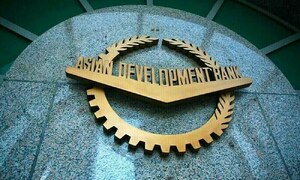A row has broken out between the Asian Development Bank and the United States, one of its biggest donors, over the multilateral agency's lending policies and function, bank and other officials say. Just over two weeks ago, Washington voted against the ADB's long-term strategy, which charts the policies it hopes to adopt until 2020, the ADB's Web site www.adb.org says.
Britain abstained, but the rest of the 12-member board of the Asian multilateral lender approved it. The ADB holds its annual meeting in Madrid on May 3-6, where the strategy will be discussed by the bank's governors. "We opposed the long-term framework because we believed it needed further improvements including an increased focus on the very poorest countries in the region and a better results measurement framework," a US Treasury Department official said in Washington.
Bank officials said the US disquiet appeared to be focused on the ADB's lending policies to middle-income countries, such as India and China, the fastest growing economies in the world.
ADB President Haruhiko Kuroda has said despite the US vote, there was a general consensus on bank strategy and that Washington was not opposed to the basic thrust of its policy. He noted also that loans to India, China and other middle income countries were at market-linked rates while poorer nations were given soft loans under the Asian Development Fund (ADF) concessional window.
BR100
15,085
Increased By
112.5 (0.75%)
BR30
44,012
Increased By
987.7 (2.3%)
KSE100
148,618
Increased By
1274.3 (0.86%)
KSE30
45,248
Increased By
370.7 (0.83%)





















Comments
Comments are closed.